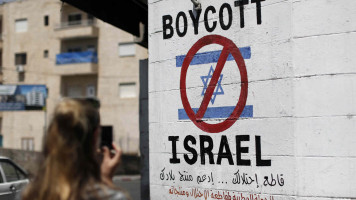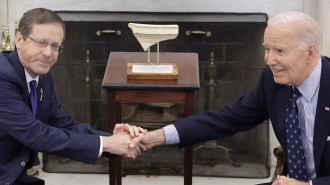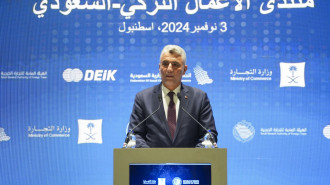Syrian opposition appoint new negotiations chief Nasr al-Hariri for Geneva talks
Syria's opposition have selected Nasr al-Hariri to head a negotiations team for next week's UN-brokered peace talks with the Syrian regime in Geneva, during a conference in Saudi Arabia's capital mired with controversy.
Hariri will serve as chief negotiator for the High Negotiations Committee following the resignation of former head Riyad al-Hijab who quit shortly before the opposition conference in Riyadh.
He will lead a 36-member negotiating team for the talks on Tuesday, following three days of intense negotiations between various opposition groups in Saudi Arabia.
"Hariri was selected as the head of the delegation today," opposition member Jamal Suleiman told reporters.
He is a former local politician who defected and joined the opposition's Syrian National Coalition.
Hariri also attended controversial Russian-Turkish-Iranian sponsored peace talks in Astana and has taken a lead role in negotiations on behalf of the opposition.
In addition to delegates from the Syrian National Coalition, it includes representatives from the Cairo and Moscow-based platforms.
These have been accused of collaborating with Russia and the Syrian regime, with a campaign by activists this week aimed at excluding the groups from the HNC.
Syria's opposition have been under pressure from Saudi Arabia and other powers to "unify their ranks" and to weaken their demands - such as the departure of Bashar al-Assad - following a series of regime advances.
In addition, Russia's leading role in peace efforts and reluctance from the US and Gulf to continue supporting the opposition has given the regime a stronger hand in negotiations.
Despite this, new chief Hariri says he hopes the regime will also accommodate opposition demands to end the war.
"We expect the other side (Syrian regime) to come to the negotiations so that we can all move forward in the political process," Hariri said.
Several rounds of talks hosted by the United Nations have failed to bring an end to the Syrian conflict.
This weakness has seen the UN-sponsored Geneva talks lose its significance while the rival Russian-Turkish-Iranian peace efforts have been seen as more forceful.
These talks have led to the creation of "de-escalation" zones, despite Moscow and Damascus routinely breaking these local ceasefires.
More than half a million have been killed and millions forced from their homes since Bashar al-Assad's forces brutally suppressed anti-regime protests in 2011, leading to an armed rebellion.
Assad's fate has been a major stumbling block in multiple rounds of negotiations between the Syrian regime and the opposition.
Agencies contributed to this story.






 Follow the Middle East's top stories in English at The New Arab on Google News
Follow the Middle East's top stories in English at The New Arab on Google News


